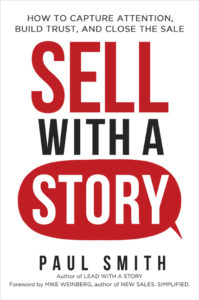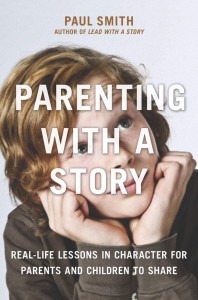Podcast: Play in new window | Download | Embed
Subscribe: RSS
Podcast (parenting-with-a-story-podcast-series): Play in new window | Download | Embed
Subscribe: RSS
 When I was fourteen years old, my mother was diagnosed with an advanced case of pneumonia. For four months, her doctors tried every treatment known to cure it, none of which had any effect. Then they realized why. She didn’t have pneumonia. She had lung cancer. They’d been misled by the strangely uniform and checkered pattern on the X-rays.
When I was fourteen years old, my mother was diagnosed with an advanced case of pneumonia. For four months, her doctors tried every treatment known to cure it, none of which had any effect. Then they realized why. She didn’t have pneumonia. She had lung cancer. They’d been misled by the strangely uniform and checkered pattern on the X-rays.
By the time they had a proper diagnosis, it had progressed beyond their ability to treat it successfully. They gave her six months to live.
At the still young age of forty-seven, and with five children, including three teenagers who still lived at home, she searched for any way she could to ease the burden she knew the loss of a mother would have on her kids. One of the things she found came from an unlikely place: a poem.
Her mother (my grandmother) had been an accomplished poet and therefore had a circle of friends who were also poets. When my grandmother passed away, one of those colleagues wrote to my mother to console her. In the handwritten letter, she included a poem she had composed that she thought might help. Apparently it did. Because thirteen years later, my mother still had the letter. And facing her own imminent death, she took it out and read it to each of us. Below is that poem.
One Dark Branch
by Marie Erwin Ward
I have at last returned . . .
I have come back from alien lands that burned
With hate; back to this tree.
I dreamed her sweeping fronds were over me
Through nights and days, rest-yearned.I ease my tortured way
To sit beneath the pepper tree and sway
My mind with her green lace
To calm my broken spirit, lift my face
And learn once more to pray.This tree lives not to grieve
Because of one dark branch where green sprays weave.
One useless bough a grief?
She crowns her loss with crimson fruit and leaf . . .
I touch my empty sleeve.
After reading the poem to us, my mother shared the author’s explanation: A soldier has returned from war. He comes home and sits under the pepper tree he used to sit under to think. His quiet time under the tree helps calm him from the horrors of war he has seen. And it is there that he relearns the healing power of prayer.
He looks up and sees “one dark branch” on the tree, a dead limb. He notices the tree does not give up and die because of the loss of one branch. Instead, it just makes that many more leaves and fruit on the other branches to fill the empty space.
The last line is “I touch my empty sleeve.” This soldier, like the tree, has also lost a limb (his arm) in the war. What he learns from the tree is that because he no longer has his arm, the other parts of his body and mind should strengthen to accommodate the loss. He must become a more stable and mature person to persevere with this handicap.
Our mother explained to us that God gives extra grace to people like that to help them, such as blind people whose sense of hearing becomes more acute to compensate for their loss of sight.
The way she related this to us was by showing us how the same thing applies to families that lose members. When someone dies, the other members of the family must grow, strengthen, and mature to compensate for that loss. The family must grow new love and wisdom, just as the tree grew new leaves and fruit.
That poem was her dying gift to us. But it was also her expectation. It was her expectation for how we were to respond as a family after she was gone. When the situation calls for it with someone you love, it can be your gift as well.
Thank you Marie Erwin Ward, for the wisdom and beauty in your poem, and for the peace it’s given me for the last 36 years. And thank you to my mother for sharing it with me and my siblings, and for expecting nothing less of us. I miss you, Mom.
As with all of these stories, I encourage you to share this with your kids and then have a discussion about it. Here are some questions to get you started.
- Do you know anyone who’s lost a family member? What are their family relationships like now? Do you think they might benefit from hearing this poem?
- How do you think it is that other senses can improve in someone after they lose their sight, for example?
- If one of your parents died, how do you think they would want you to behave as a family after they were gone?
Use these links to subscribe to this podcast on iTunes or Stitcher, or Podbean.
Source: Parenting with a Story: Real-life Lessons in Character for Parents and Children to Share, by Paul Smith.
—
 Paul Smith is one of the world’s leading experts on business storytelling. He’s a keynote speaker, storytelling coach, and bestselling author of the books Lead with a Story, Parenting with a Story, and Sell with a Story.
Paul Smith is one of the world’s leading experts on business storytelling. He’s a keynote speaker, storytelling coach, and bestselling author of the books Lead with a Story, Parenting with a Story, and Sell with a Story.


 Connect with him via email here.
Connect with him via email here.
Follow him on Facebook, LinkedIn, Twitter, and Instagram.
Sign up for his newsletter here to get one new story a week delivered to your inbox.


Well written and well done thank you Paul! The story and poem are a bright light from a dark time. I will share with the kids.